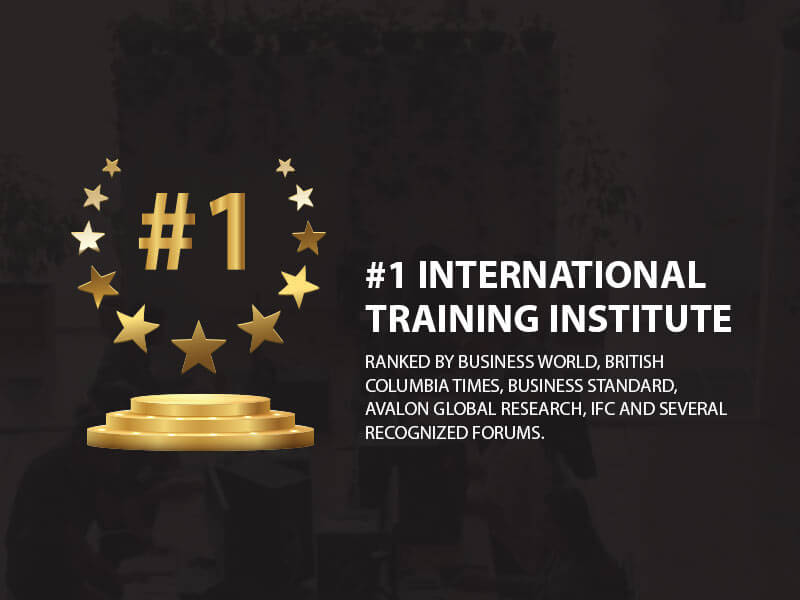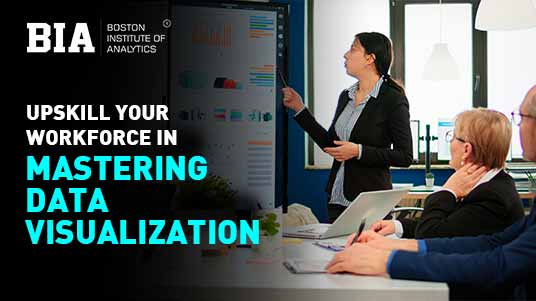Global Leader in Professional Training Courses
BIA® Courses Tailored to your Learning Goals

Data Science and Artificial Intelligence
4-10 MONTHS




Generative AI And Agentic AI Development
4-10 Months




Cloud Computing and DevOps
In-Demand




Cyber Security and Ethical Hacking
4-10 MONTHS




Java and JavaScript Full Stack Development
In-Demand




Big Data, AWS and Hadoop
4-10 Months



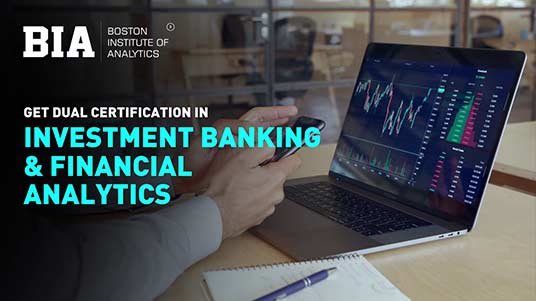
Investment Banking and Financial Analytics
4-10 MONTHS



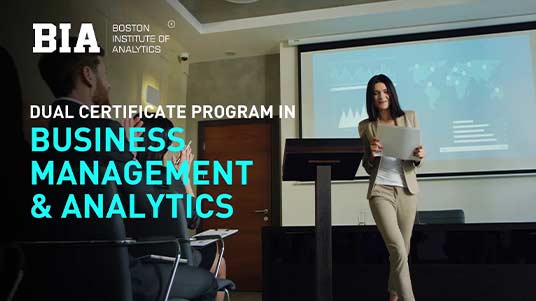
Business Management and Analytics
4-10 MONTHS



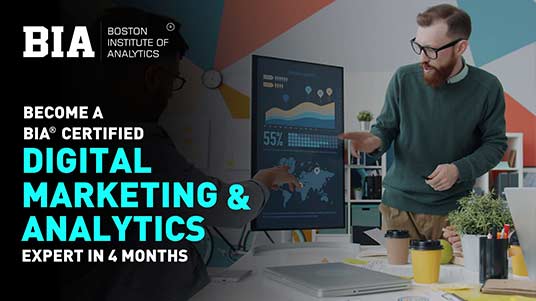
Digital Marketing and Analytics
4-10 Months




Advertising, PR & Corporate Communications
4-10 Months




Integrated 2D, 3D Animation & VFX
6-12 Months




Graphic Design, Video Editing and 2D Animation
4-10 Months




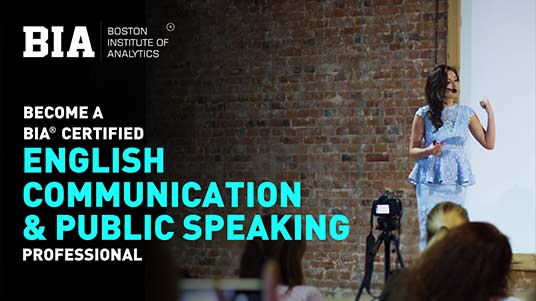
English Communication and Public Speaking
4-10 Months




Chartered Financial Analyst (CFA)
5 MONTHS




Certified Public Accountant (US CPA)
16 MONTHS



Join the Millions of Students who have Achieved Remarkable Success
The BIA®Advantage

Immersive Classroom Experience
With live, in-person professional training courses by industry experts, immerse yourself in a classroom experience that transcends traditional learning, focusing on real-world applications.

GLOBALLY RECOGNIZED CERTIFICATION
BIA® Certification, globally recognized by leading multinational corporations, provides you an international edge with an industry-focused curriculum.

HANDS-ON TRAINING BY INDUSTRY EXPERTS
Immerse yourself in a transformative learning experience as leading industry professionals guide you through hands-on training, equipping you with practical expertise to excel in the fast changing technology field.

REAL WORLD PROJECTS & CASE STUDIES
Navigate the complexities of rapidly evolving technology industry by tackling real-world projects and case studies, gaining hands-on experience that goes beyond the classroom.

360° DEGREE CAREER SUPPORT
Supercharge your career journey with personalized resume building, interview prep, exclusive partner access, and interactive Live DoubtBuster and Refresher sessions.

BIA® ALUMNI STATUS
Attain BIA® Alumni Status and become part of an elite community, enjoying privileged connections, ongoing learning, and lifetime access to global network of industry professionals and partner companies.
Our Six Pillars of Excellence
School of Technology and AI
Embark on a journey into the future at the School of Tech and AI. Here, we nurture the minds that will shape the technological landscape of tomorrow. Our cutting-edge professional training courses and state-of-the-art facilities empower students to harness the power of technology and artificial intelligence. From Data Science and AI to Cybersecurity and more, we cultivate the skills that drive progress in the digital age.
15,000+
BIA® Trained Students
1,500+
Industry Trainers
350+
Corporate Partners
School of Management
Welcome to the beating heart of strategic education – the School of Management. Here, we don’t just cultivate leaders; we tailor expertise to meet the demands of a dynamic business landscape. Explore our specialized courses in Business Management, Investment Banking, Digital Marketing, and more. All our professional training courses offer a cutting-edge curriculum and real-world insights, empowering students to excel in their chosen domains.
10,000+
BIA® Trained Students
1,200+
Industry Trainers
350+
Corporate Partners
School of Finance
Welcome to the School of Finance, where we empower students to achieve prestigious global credentials in finance and accounting. Our specialized CFA, FRM, and CPA exam preparation courses are tailored to help students master the content, strategies, and skills crucial for exam success and professional advancement.
5,000+
BIA® Trained Students
200+
Subject Matter Experts
350+
Corporate Partners
School of Animation and Design
Imagination takes flight at the School of Animation and Design. Here, creativity is not just encouraged; it’s celebrated. Our students delve into the realms of visual storytelling, graphic design, and animation, guided by industry experts. Through courses in Graphic Design, Video Editing, 2D Animation, 3D Animation, and VFX – a fusion of artistry and technology – we mold visionaries capable of bringing captivating stories to life on both big and small screens.
8,000+
BIA® Trained Students
900+
Subject Matter Experts
350+
Corporate Partners
School of Media and Communication
Step into the dynamic world of media and communication at our School, where innovation and strategic thinking converge. Here, we go beyond traditional education to shape individuals into savvy communicators and media professionals. Immerse yourself in our specialized professional training courses covering Journalism, Digital Media, Public Relations, and more. With a contemporary curriculum and real-world insights, our students develop the skills and knowledge needed to thrive in the fast-paced realm of media and communication, becoming adept storytellers and influencers in the digital age.
7,500+
BIA® Trained Students
1000+
Industry Trainers
350+
Industry Trainers
School of Scholars
Welcome to the School of Scholars, where we ignite young imaginations and foster a love for learning. Our vibrant curriculum, spanning Interactive Learning, Creative Arts, Coding, and Vedic Mathematics, encourages students to explore, create, and implement. Guided by passionate educators, our scholars engage in hands-on activities, from code writing to painting, blending fun with academic excellence. Here, we shape inquisitive minds, ready to thrive in an ever-changing world.
10,000+
BIA® Trained Students
2,500+
Subject Matter Experts
500+
Monthly Classes
School of Corporate Training
Step into the dynamic realm of the School of Corporate Training, where every learning journey is a fusion of expertise and innovation! Our comprehensive corporate training offerings blend meticulously curated courses with the flexibility of crafting bespoke training programs tailored precisely to your team’s unique goals and aspirations. Join us in unlocking your potential and embracing the opportunities of today’s fast-paced business world.
1,000+
Trainings Conducted
3,000+
Subject Matter Experts
350+
Corporate Partners
The Post Graduate Degree School
At The Post Graduate Degree School, we are committed to providing advanced education and specialized training for students and professionals who are eager to advance their careers to new heights. Our institution is built on the principle of excellence, offering a wide array of postgraduate degree programs, from Computer Science to business administration, meticulously crafted to address the demands of today’s rapidly changing job market.
1,200+
BIA® Trained Students
100+
Subject Matter Experts
350+
Corporate Partners
Learners Embracing Knowledge from 25+ Countries
Explore Free
Master Classes
Start your learning journey at Boston Institute of Analytics, BIA®, for free with our Free Master Classes across professional training courses.

Our Media Presence
BIA® Alumni Working with Top Global Companies
Got more questions?
Talk to our team directly.
Our Academic Counsellor will get in touch with you shortly.

